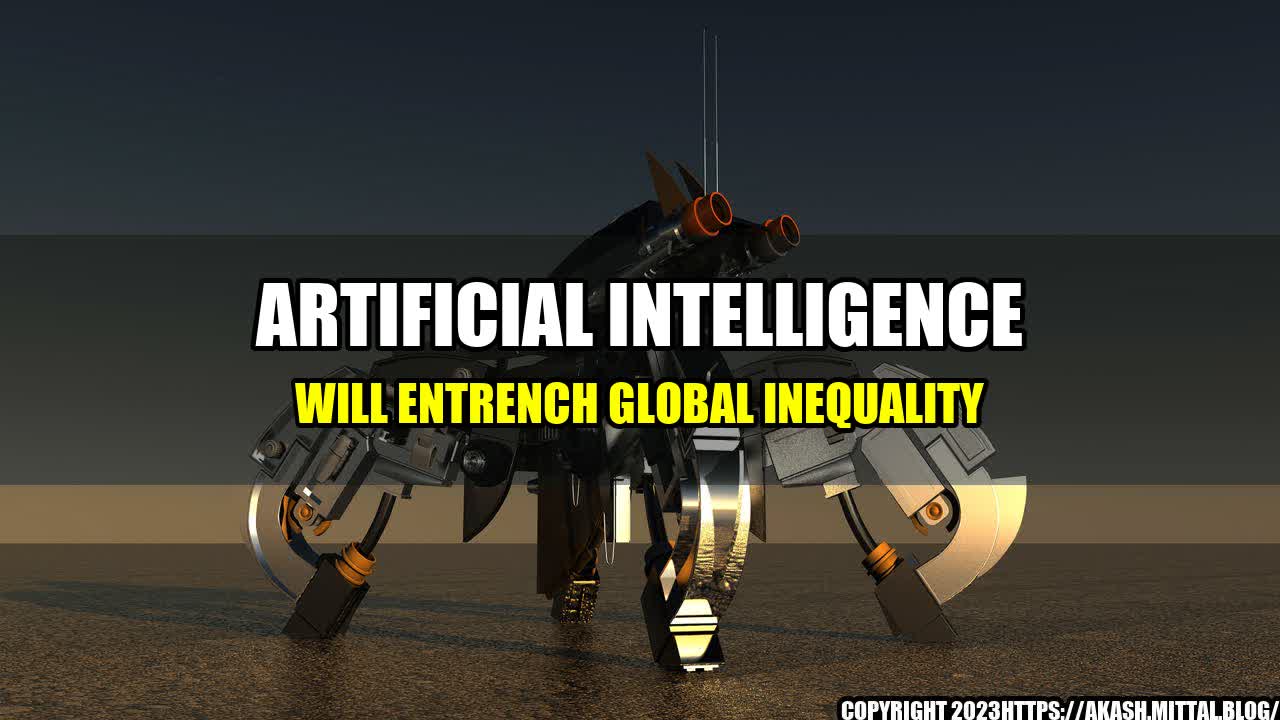Artificial Intelligence Will Entrench Global Inequality


Imagine a future where every job, from manual labor to professional services, can be performed by a machine with artificial intelligence (AI). This is not a distant science fiction scenario, but a realistic prediction for the near future. According to a report by the McKinsey Global Institute, about half of the activities people are paid to do in the world's workforce could be automated with current AI technology. This means that millions of jobs could be at risk in the coming years, particularly in low-skilled and routine activities.
But the impact of AI on employment is not the only concern. AI could also widen the gap between the rich and the poor, both within and between countries. Here's why:
AI will create winners and losers. Those who own the AI systems and the data they use will reap the benefits, while those who don't will be left behind. This is not a new trend, but AI will accelerate it. As a recent report by the Economist Intelligence Unit notes, "One of the problems with AI is that it requires massive amounts of data to improve its performance over time. This data is often proprietary, and therefore the domain of the companies that own it. This makes it difficult for new players to enter the market, because they don't have access to the data that is necessary to create better AI models."
Examples of this are already visible. In the United States, for instance, the top 1% of households own 40% of the country's wealth, while the bottom 90% own only 23%. With AI, the top 1% will have even more power, because they will be able to use AI to increase their wealth and influence even further.
The impact of AI will not be uniform across the globe. Rather, it will depend on factors such as the availability of data, the level of investment in AI research and development, and the state of the local labor market. This means that developed countries, with their advanced economies and abundant resources, are likely to reap the biggest benefits of AI, while underdeveloped countries will lag behind.
For instance, in Africa, where the vast majority of the population works in low-skilled and routine jobs, the adoption of AI could result in widespread unemployment, without the creation of new jobs in high-skilled activities. In addition, because the continent lacks the necessary infrastructure to support AI development, such as high-speed internet and reliable power, it will be difficult for African countries to catch up with the rest of the world.
AI technology is not neutral. Rather, it reflects the biases and stereotypes of its creators and the data it uses. This means that AI could perpetuate and exacerbate gender inequalities in society, rather than address them.
For instance, a recent study by the National Bureau of Economic Research found that Amazon's AI recruitment tool discriminated against women. The tool was trained on resumes submitted to the company over a 10-year period, and it learned to penalize resumes that contained certain words, such as "women" and "female." As a result, the tool downgraded resumes that belonged to women, even if they were qualified for the job.
Similarly, AI could reinforce existing gender roles in the division of labor, by assigning women to low-skilled and routine tasks, while men take on high-skilled and creative activities. This would perpetuate the gender pay gap, and hinder efforts to achieve gender equality.
AI has enormous potential to improve our lives, from healthcare to transportation to education. However, it also presents significant challenges, particularly in terms of its impact on equality. To address these challenges, we need to take a proactive approach, rather than a reactive one.
Curated by Team Akash.Mittal.Blog
Share on Twitter Share on LinkedIn